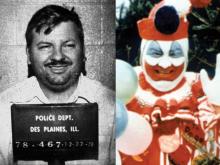
Anastasia Solovieva-King (Photo AP)
The murders of two mail-order brides in Washington State led the U.S. Congress to enact the Federal International Marriage Broker Regulation Act in 2005. The legislation was intended to stop abuse of mail order brides by prospective husbands with criminal histories.
The mail-order bride business is booming. In the United States alone there are over 300 such agencies. Clients can peruse information on 150,000 would-be brides on the Internet or catalogues. Many women are enticed by the thought of meeting a wealthy American husband who can offer them a better life.
The vast majority of males using these brokers are from the United States and Western Europe and most brides are Asian, Eastern European or South American. In the United States there are approximately 12,000 mail-order weddings annually through marriage brokers. Market research shows it is a $2 billion business worldwide and growing.
There are no statistics to prove that mail-order brides are more prone to abuse than women who marry in a more traditional manner. Research has shown that although the divorce rate is high in these marriages, it is still almost 10 percent lower than the U.S. divorce rate. There are no exact figures available as to the number of violent deaths that have occurred in mail-order marriages but there have been several highly publicised ones.
Most of the mail-order bride agencies are reputable and do a thorough check on their potential clients as to their background, criminal records, etc. However, there have been some instances where the agency did not properly vet the client and lives were put at risk.
The cost for meeting and marrying in this way can vary from $4,000 to $12,000 as it depends on the agency fee, travel to meet the bride, wedding costs and legal fees in obtaining a K-1 Fiancée visa. It is an expensive way of meeting a suitable partner but there are a lot of very happy couples who have met through this method.
Susana and Anastasia were not so lucky.
Susana Remerata Blackwell
Susana Remerata was born in Cataingan on the island of Masbate in The Philippines to Marcella and Zucino. Masbate is an island with a population of half a million people living in 21 towns scattered around the island. It is one of the 7,100 islands that make up the Philippines and is one of the poorest provinces of one of the poorest nations in Asia.
Susana’s parents, who owned two general stores, were better off than the majority of their neighbors. Even though their home was concrete built it didn’t have a stove, flush toilet or telephone. Owning a car was just a pipe dream. Susana was an honor student at Cataingan National High School. She studied nursing for a brief period but changed to hotel and restaurant management at a college in Cebu, a 12-hour ferry ride away. She was a local beauty queen – Miss Cataingan, Miss Masbate and was a contestant for Miss Cebu.
Susana was also well educated and she nurtured a dream of leaving her small town in the Philippines for a better life in the United States with the right man. In 1992, at age 21, she entered her photograph and particulars in a catalogue of potential brides. An estimated 20,000 Filipino women leave the country each year to marry foreigners. The majority marry American men who find them attractive because they speak English and are familiar with Western culture. The initial contacts are usually through brokers and conducted by mail.
Shortly after Susana’s particulars appeared in the “Asian Encounters” catalogue she was contacted by Timothy Blackwell who thought she had everything he was looking for in a wife. Mr. Blackwell was a 48-year-old computer technician from Seattle and had trouble meeting women.
The romance blossomed by mail for more than a year before Blackwell flew to the Philippines on March 6, 1993. They were married March 31, 1993.
After a month in the Philippines, Timothy Blackwell returned to Seattle and proceeded with the arrangements needed for Susana to join him. On February 5, 1994 Susana flew to join her husband. In less than two weeks of living with Timothy, she left his home and moved to stay with two Filipino girlfriends, Phoebe Dizon and Veronica Laureta Johnson. She claimed that her husband had been abusive and applied for residency under a battered-wife exception to deportation law.
Lawyers were engaged by both parties and a court date was set for March 1995. The case was complicated as it involved annulment or divorce and deportation. Timothy Blackwell stated that he felt “duped” by Susana and she had used him for money and to gain residency in the United States. He said she was a mail-order bride turned swindler.
When Susana appeared in court she was eight months pregnant by another man. She told the judge that her husband had been abusive from the start but that she had really loved him and had hoped the marriage would work.
On March 3, 1995 final arguments were to be presented to the court. While waiting for proceedings to begin, Susana sat in the hallway of the King Country Courthouse with her friends Phoebe and Veronica chatting. They were approached by Timothy Blackwell wielding a 9mm Taurus semiautomatic handgun and within seconds he shot dead his wife, her unborn baby, and her friends Phoebe Dizon and Veronica Laureta Johnson.
Timothy was quickly wrestled to the ground by courthouse security, taken into custody and within days was charged with three counts of aggravated first-degree murder and causing the death of Susana’s unborn baby. In Washington State aggravated murder carries a minimum sentence of life imprisonment or a death sentence.

Staff from the King County Prosecuting Attorney's Office's Domestic Violence Unit with Prosecutor Satterberg at API/Chaya candlelight vigil for DV victims April 18, 2013 (Photo King County)
On May 29, 1996 a jury of four women and eight men found Timothy Blackwell guilty of first-degree murder in the deaths of his estranged wife Susana Remerata, Phoebe Dizon and Veronica Laureta Johnson. He was also found guilty of first-degree manslaughter in the death of Susana’s unborn baby. Returning to the court in June of 1996 for the penalty phase of the trial, the jury deliberated for almost two days but could not, unanimously, agree to a death sentence and he was sentenced to life in prison without the possibility of parole.
Anastasia Solovieva-King
 |
| Indie King Jr (Photo KOMO 4 News) |
Indle King Jr. was the only son of academic successful parents and grew up in a loving home in Mercer Island, Washington with his sibling, Paige. His friends remember him as a bit of a show off, a good student, happy-go-lucky, ambitious and eager to please. He seemed to be obsessed with Nordic blonde women and often spoke about ordering an “obedient” one through the mail.
In 1984 Indle graduated with honors in business from the University of Washington and worked as an accountant with an oil company. He earned a Master’s Degree in finance in 1987 at the University of Chicago Business School. Several short-term jobs followed which allowed him to accumulate air miles and he decided to use these on a visit to the Soviet Union. Upon his return home it was very clear, to family and friends, that he was very impressed with the beauty and decorum of the young women there and began placing advertisements in Russian publications to meet a partner.
Now living in Cincinnati and studying for a doctorate at the University of Cincinnati, Indle soon started corresponding with 18-year-old Ekaterina Kazakova from Siberia. He invited her to study in the United States. In September of 1993 she moved to Cincinnati as a visiting biology student. Within a month Indle and Ekaterina were married as he told her that she would not be able to remain in the United States otherwise. Soon after marrying Ekaterina, Indle dropped out of the doctoral program and had several short-term teaching positions but none of these contracts were renewed.
Ekaterina found work as a pharmacy technician while studying and was the only breadwinner in the household. Indle encouraged her studies as he saw the potential in her future earning capacity. However, he had become physically violent and threatened to kill her if she reported him to the police or tried to leave him. Even though these threats did make her afraid for her life, Ekaterina did report him to the police and got a restraining order.
In retaliation, Indle filed for an annulment of the marriage on the grounds that it was a fraud by Ekaterina to gain residency in the United States. The annulment was refused and their divorce was made final in July 1997. Ekaterina has since remarried and is a successful practicing dentist who does not wish her new name and location made public.
Indle returned home to Mercer Island a bitter man and told all, who would listen, how he had been duped by Ekaterina to gain citizenship. His old friends were shocked at the change in him. At 5 foot 7 inches, wearing a hairpiece and weighing 290 pounds he was a different person than the Indle they remembered from high school. He soon began searching for another “Mail Order Bride” and began corresponding with 18- year-old Anastasia Solovieva, who had placed her particulars and photograph in a catalogue of prospective brides. Her parents encouraged this as a cousin had found a happy marriage in Florida by that route.
Anastasia grew up in Kyrgyzstan in the former Soviet Union, spoke three languages and graduated, with top honors, from the Musical College in Bishkek. Indle travelled to Kyrgyzstan and spent a month with Anastasia and her parents, both academics. Indle and Anastasia were married at the end of the month.
Upon their arrival in the United States, they settled in the Seattle area and Anastasia enrolled at the University of Washington taking business courses. She also found part- time jobs in two local restaurants where she was very well liked by her co-workers. However, it soon became obvious to her friends and colleagues that her marriage was in trouble and they advised her to leave her abusive, controlling husband.
In August 2000, Indle was caught shoplifting some fruit and soft drinks from a local supermarket and told police that his wife was divorcing him and he had no money. This was not true, but one month later Indle filed for divorce. Anastasia then decided to go home to Kyrgyzstan to visit her parents and to discuss her circumstances with them. Shortly after Indle followed her in an attempt at reconciliation. They returned together to Seattle and Anastasia King was never seen alive again.
When her parents did not receive any calls or emails they became very concerned and contacted the police. When questioned by the police, Indle said that he and Anastasia had an argument before flying home from Moscow and he had returned alone. A check by the police proved that they had flown back to Seattle together and police believed that Anastasia had met with foul play by her husband. A close police watch showed Indle making several visits to an inmate in the Snohomish County Jail who had been a lodger in their house in Seattle.
Detectives questioned this inmate, Daniel Larson, who was in jail awaiting trial for attempting to have sex with a 16-year-old immigrant from the Ukraine. Larson soon broke down and hoping to get off the attempted rape charge, told police that he knew where the body of Anastasia King was and that he had helped her husband murder her. A police search soon recovered the body of Anastasia on a rubbish dump on the Tulalip Reservation. Indle King was immediately arrested and charged with first-degree murder.
In a plea bargain for his testimony, Larson pleaded guilty to second-degree murder for his participation in the crime and was sentenced to 20 years.
Trial
The trial of Indle King began in February 2002. Daniel Larson told the court that Indle wanted to kill Anastasia as he didn’t want to go through another expensive divorce. Larson seemed to have been completely under the influence of the older King and said they were involved in a sexual relationship. He agreed to help in the murder and described how he strangled Anastasia with a neck tie while she was held down by her 290-pound husband sitting on her. Larson testified that he and King then removed her clothing, diamond wedding ring and earrings before dumping her body on the reservation.
For the defense, David Allen, said that Larson had acted alone because he believed she had wanted him out of the house, had been unfaithful to her husband and he had a dislike of immigrants. He also stressed the point that Larson had been offered a “sweetheart deal” by the prosecution for his testimony.
On the witness stand King’s own testimony was the most damaging to the jurors as it became very clear that his greed was a major factor in his wife’s murder. He admitted that he had given false information to U.S. immigration to have something to hold over his wife, and prevent her from gaining permanent residency, if things didn’t work out between them.
He also admitted that during their visit to Kyrgyzstan, in June 2000, he had stolen her passport in an attempt to prevent her from returning to the United States and applying for a divorce. Unfortunately, Anastasia was able to convince him to return her passport and they travelled back to Seattle.
The court was presented with emails taken from King’s computer that showed he was contacting another prospective mail-order bride three weeks before the murder of Anastasia. He stated that he would be a free man within a month.
After a five-week trial, the jury found Indle King guilty of first-degree murder. One month later he was sentenced to 29 years imprisonment for his wife’s murder.
Upon hearing the sentence, King addressed the judge saying “I absolutely accept the verdict of the jury. I don’t want my family affected by me.”
In late 2006 Daniel Larson withdrew his guilty plea to second-degree murder in the belief that his conviction would be overthrown. This negated the plea bargain and enabled the prosecution to bring a charge of first-degree murder. Larson was found guilty and sentenced to 29 years.
Postscript
President George W. Bush signed the Federal International Marriage Broker Regulation Act in January 2005. This legislation was the result of a campaign following the murders of Susana and Anastasia. The legislation was intended to stop abuse of "mail order brides" by prospective husbands with criminal histories.








